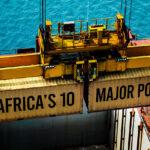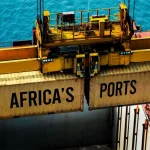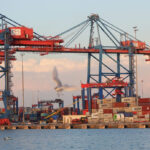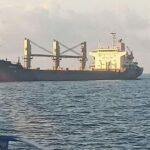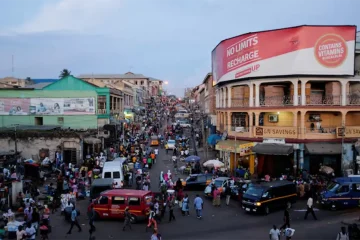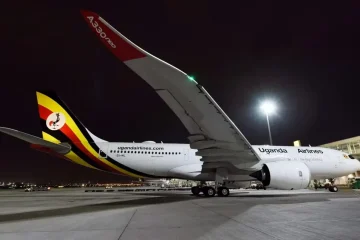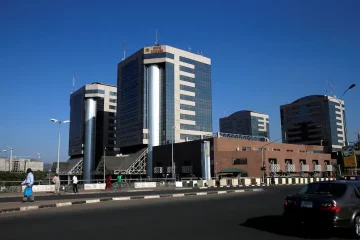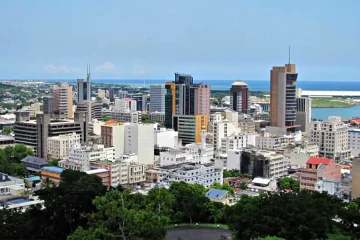AFRICAN ports are making the most progress in reducing vessel waiting times, contrasting sharply with trends in other regions, according to a new report.
The report, which assessed over 182,000 vessel calls, 238.2 million moves, and 381 million TEUs in 2023, underscores the success of targeted infrastructure upgrades and strategic policy interventions in enhancing the efficiency of Africa’s ports.
‘Container Port Performance Index (CPPI)’ was released on June 4, 2024, by the World Bank and S&P Global Market Intelligence and it shows that African ports have slashed port arrival times by an impressive 2.0 hours for all vessel sizes.
“The overall improvements and reductions in average arrival hours in African ports has been driven by Dar Es Salaam, Monrovia, Douala, Pointe-Noire, Tema, Luanda, Lomé, Lagos, Port Victoria, Dakar, and Ngqura,” the report explains.
“Despite its relatively low ranking, Dar es Salaam Port in Tanzania managed to shave ship arrival times by 57%,” the authors further explain in the report.
African ports have been undergoing various infrastructural upgrades as countries seek to improve service delivery and general efficiency amidst a growing competition for maritime business.
The report reaffirms these ongoing efforts are bearing fruit with port waiting times in many African ports now at par with ports in developed markets such as in Asia. In fact, the improvements, in African ports in lowering waiting times, is the highest compared to more developed markets in Europe.
“There are no European ports in the top 20 improvers. Poti, La Spezia, Mersin, Trieste, Hamburg, and Koper all experienced longer average arrival times,” the authors explain.
The trend instils hope in the future of Africa’s maritime business as competition in the global maritime landscape intensifies.
This year’s CPP Index is however dominated by Asian ports which excelled most in 2023 accounting for 13 of the 20 top places. Yangshan Port (China) is ranked in first place, followed by the Port of Salalah (Oman) in second place, the port of Cartagena in Colombia is in third.
Morocco’s Tanger Mediterranean maintained its 4th place since 2022 making it Africa’s best port with a handling capacity of more than 4 million TEUs per year.
In Sub-Saharan Africa, several ports maintained their top 10 spots despite disruptions. These include Berbera and Mogadishu in Somalia, Conakry in Guinea, Freetown in Sierra Leone, and Toamasina in Madagascar.
Notable new entrants in the list include Malabo and Bata in Equatorial Guinea, the port of Takoradi in Ghana and Port Namibe in Angola. The new entrants in the top ten list have immense infrastructure upgrades to thank for the milestones.
Congestion has previously plagued many ports, with Durban facing cargo delays of up to 8 days. Last year, Transnet partnered with Philippine-based International Container Terminal Services to expand Durban’s Container Terminal Pier 2, aiming to alleviate the congestion.
At Angola’s port of Namibe, investments in the yard, quay, and handling equipment have led to significant improvements. Ongoing upgrades include a new 500m quay, enhanced yard structure, and further equipment enhancements. Major global shipping companies such as Maersk, Naiber, MSC, and Nile Dutch, among others, can now call in at the upgraded port.
Similar developments have been achieved at the port of Takoradi in Ghana since 2019 when a US$138 million investment deal from Africa Finance Corporation (AFC) was penned. The project aimed to modernize the container and multipurpose terminal, reducing import and export costs for Ghana’s western and central regions and neighbouring landlocked countries.
While AFC sold its 35% equity stake in Atlantic Terminal Services Limited (ATSL), the concessionaire for the expansion, in November 2023 to Yilport Holding, a global port operator, it marked Yilport’s first foray into Africa, entering a competitive landscape alongside major players like DP World.
The expansion streak has continued evidenced more recently, in January, by the commissioning of two new Damen tugboats capable of berthing any post-Panamax vessel.
Interests in control of maritime business in the lucrative Gulf of Guinea by global players especially China and the US have led to significant upgrades in the ports of Bata and Malabo in Equatorial Guinea.
According to Martin Humphreys, Lead Transport Economist at the World Bank, port upgrades are necessary if countries are to gain competitive advantage considering container shipping continues to be an unpredictable and volatile sector post-Covid.
“Major ports need to invest in resilience, new technology, and green infrastructure to ensure the stability of global markets and the sustainability of the shipping industry,” he explains in a statement accompanying the report.

